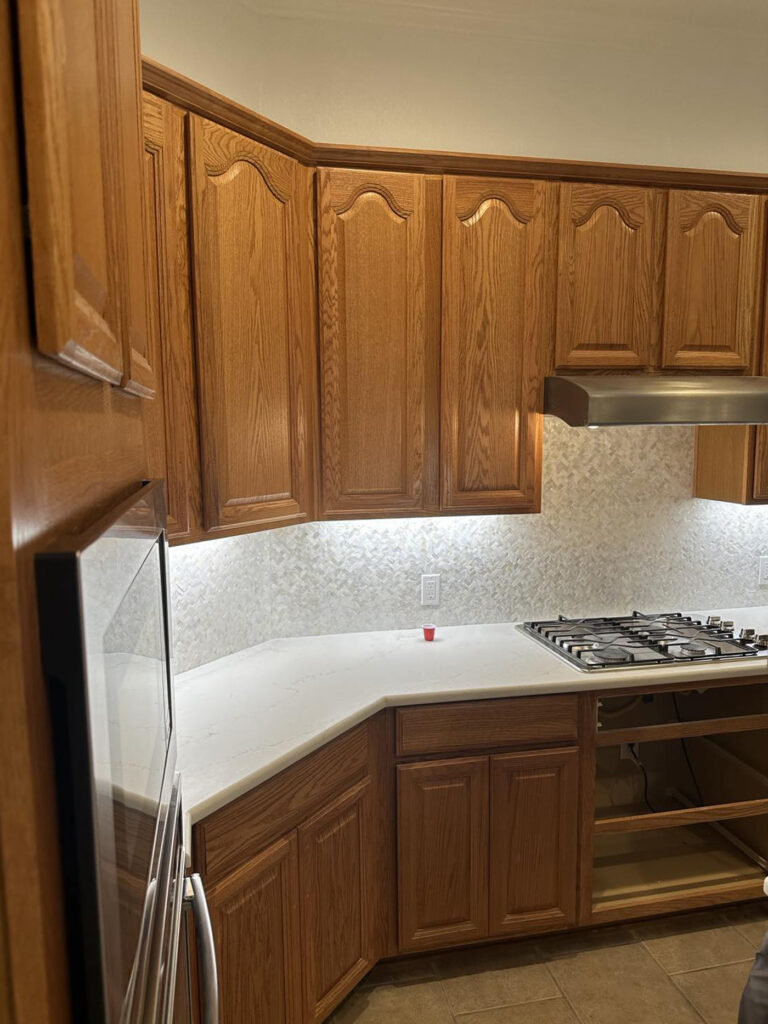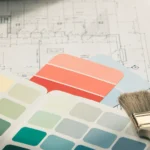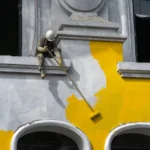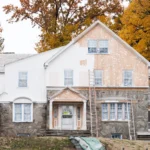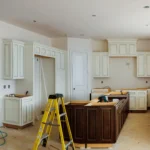Kitchen cabinets are an essential and expensive investment in your home. They serve both practical and aesthetic purposes, providing storage space while adding to the overall look of your kitchen.
Painting your kitchen cabinets can be an effective way to refresh their appearance and add a new dimension to your kitchen. However, the lifespan of paint on kitchen cabinets can vary greatly depending on several factors.
In this article, we will discuss the key factors that affect the lifespan of paint on kitchen cabinets and how to find the right professional painter for the job.
Factors that Affect the Lifespan of Paint on Kitchen Cabinets
1. Quality of Paint
The quality of paint used is a major factor that affects the lifespan of paint on kitchen cabinets. High-quality paints tend to last longer than low-quality ones.
High-quality paints have better adhesion, coverage, and durability compared to their low-quality counterparts. In addition, high-quality paints are more resistant to fading, chipping, and peeling, which are common issues that can affect the lifespan of paint.
Investing in high-quality paint may cost more initially, but it can save you time and money in the long run by reducing the need for frequent repainting.
2. Surface Preparation
Proper surface preparation involves cleaning, sanding, and priming the surface to ensure good adhesion of the paint. If the surface is not properly prepared, the paint may not adhere well, leading to poor paint quality and a shorter lifespan.
For example, if the surface is greasy or dirty, the paint may not stick well, leading to chipping and peeling.
On the other hand, if the surface is too smooth, the paint may not adhere well, leading to poor adhesion and a shorter lifespan. Therefore, it is important to ensure that the surface is properly prepared before painting.
3. Environmental Factors
Environmental factors, such as humidity, temperature, and sunlight, can also affect the lifespan of paint on kitchen cabinets. High humidity can cause the paint to take longer to dry, leading to poor adhesion and a shorter lifespan. High temperatures can cause the paint to dry too quickly, leading to poor adhesion and a shorter lifespan. Sunlight can cause the paint to fade over time, leading to a shorter lifespan. Therefore, it is important to consider these factors when painting your kitchen cabinets.
4. Usage
If your cabinets are frequently used, such as in a busy kitchen, they may be more prone to wear and tear, leading to chipping, peeling, and fading of the paint.
In addition, if your cabinets are frequently exposed to moisture, such as near a sink or dishwasher, the paint may be more prone to damage, leading to a shorter lifespan. Therefore, it is important to consider the amount of usage that your cabinets receive when painting them.
5. Maintenance
Regular cleaning and upkeep can help prolong the lifespan of the paint by preventing the accumulation of dirt, grease, and other materials that can damage the paint. In addition, using non-abrasive cleaners and avoiding harsh chemicals can help prevent damage to the paint.
Proper maintenance can also help prevent wear and tear on the cabinets, which can lead to chipping, peeling, and fading of the paint.
6. Type of Paint
Different types of paint have different properties that can affect their durability and lifespan. For example, oil-based paints tend to be more durable and have a longer lifespan than water-based paints. However, oil-based paints may also require longer drying times and emit more fumes, making them more difficult to work with. Therefore, it is important to consider the type of paint that is best suited for your kitchen cabinets.
7. Professional vs. DIY Painting
The method of painting, whether professional or DIY, can also affect the lifespan of paint on kitchen cabinets. Professional painters have the experience, skills, and tools to properly prepare the surface, apply the paint, and ensure good adhesion and durability. DIY painting, on the other hand, may lack the same level of expertise and attention to detail, leading to poor quality paint and a shorter lifespan.
Therefore, it is essential to consider whether to hire a professional painter or to do it yourself based on your level of experience and expertise.
Hiring a Professional Cabinet Painter
While DIY cabinet painting may seem like a good idea, it can be a challenging and time-consuming task that requires a lot of preparation and skill. Therefore, hiring a professional cabinet painter may be a better option for many homeowners. Here are some reasons why:
1. Expertise and Experience
Professional cabinet painters have the expertise and experience needed to do the job right. They have the knowledge and skills to prepare the surfaces properly, apply the paint evenly, and ensure good adhesion and durability. They also have the tools and equipment necessary to complete the job quickly and efficiently.
In addition, professional cabinet painters have the experience of working with a variety of materials and finishes, which can be important when dealing with different types of cabinets.
2. Quality of Work
Professional cabinet painters are trained to provide high-quality workmanship. They use high-quality paints and materials to ensure that the finished product looks great and lasts for years to come. They also pay attention to details, such as ensuring that the paint is applied evenly and that there are no drips or brush marks. This attention to detail can help ensure that the finished product looks professional and polished.
3. Time-Saving
Painting cabinets can be a time-consuming task, especially for those who are not experienced with the process. Professional cabinet painters, on the other hand, can complete the job quickly and efficiently. They have the tools and equipment necessary to make the job easier and faster. In addition, they can work around your schedule, ensuring that the job is completed in a timely manner.
4. Cost-Effective
While hiring a professional cabinet painter may seem like an added expense, it can actually be a cost-effective option in the long run. Professional cabinet painters use high-quality paints and materials that are designed to last for years. This means that you may not need to repaint your cabinets as often as you would if you did it yourself.
In addition, professional cabinet painters can help you avoid costly mistakes, such as using the wrong type of paint or applying it improperly.
5. Less Mess and Stress
Painting cabinets can be a messy and stressful process, especially for those who are not experienced with the process. Professional cabinet painters, on the other hand, have the tools and equipment necessary to minimize the mess and stress associated with the job. They can also help you avoid common problems, such as paint drips and brush marks, that can be frustrating and time-consuming to fix.
Final Thoughts
Repainting kitchen cabinets is an effective way to refresh the look of your kitchen, but it requires careful planning and execution. Before starting the project, consider factors such as the type of paint, surface preparation, environmental factors, usage, and maintenance. Furthermore, by hiring a professional, you can ensure that your cabinets look great and last for years to come.
For the best kitchen cabinet painters in Houston, look no further than Musselman Painting! Our experts will breathe new life into your kitchen cabinets through quality workmanship and materials. Give us a call to discuss your project further!


